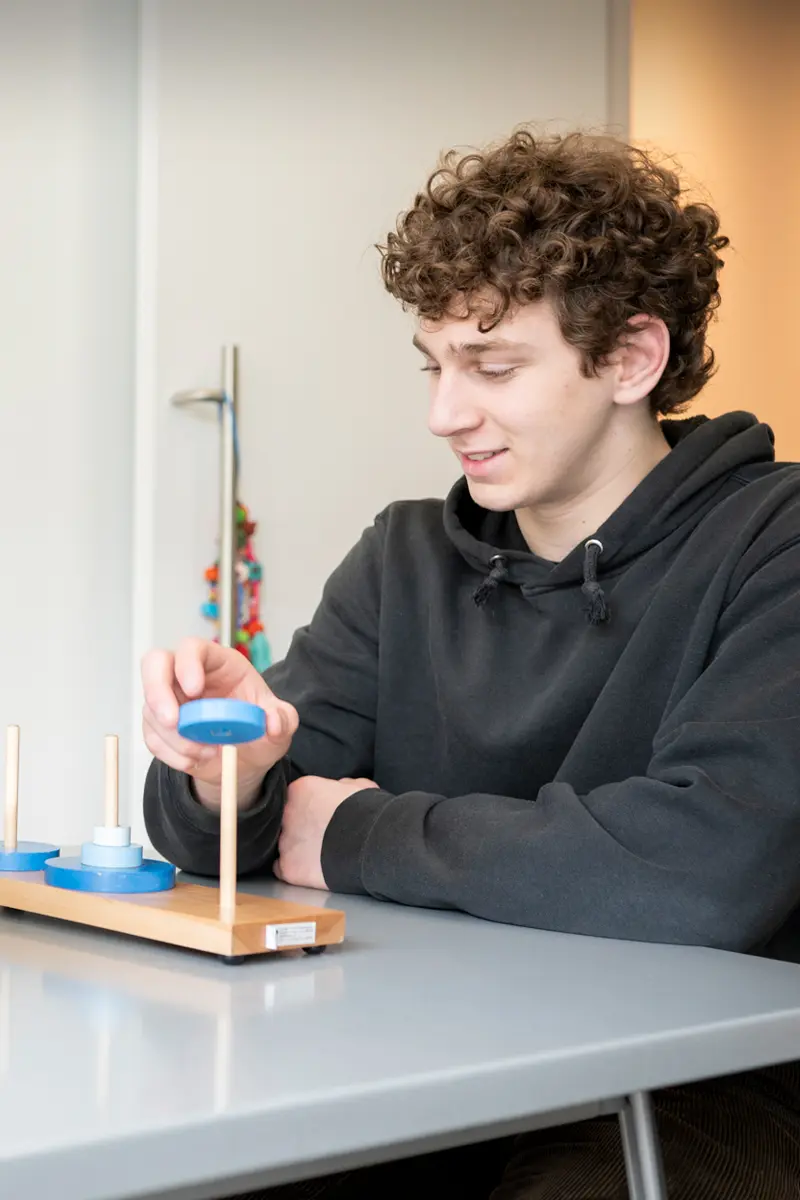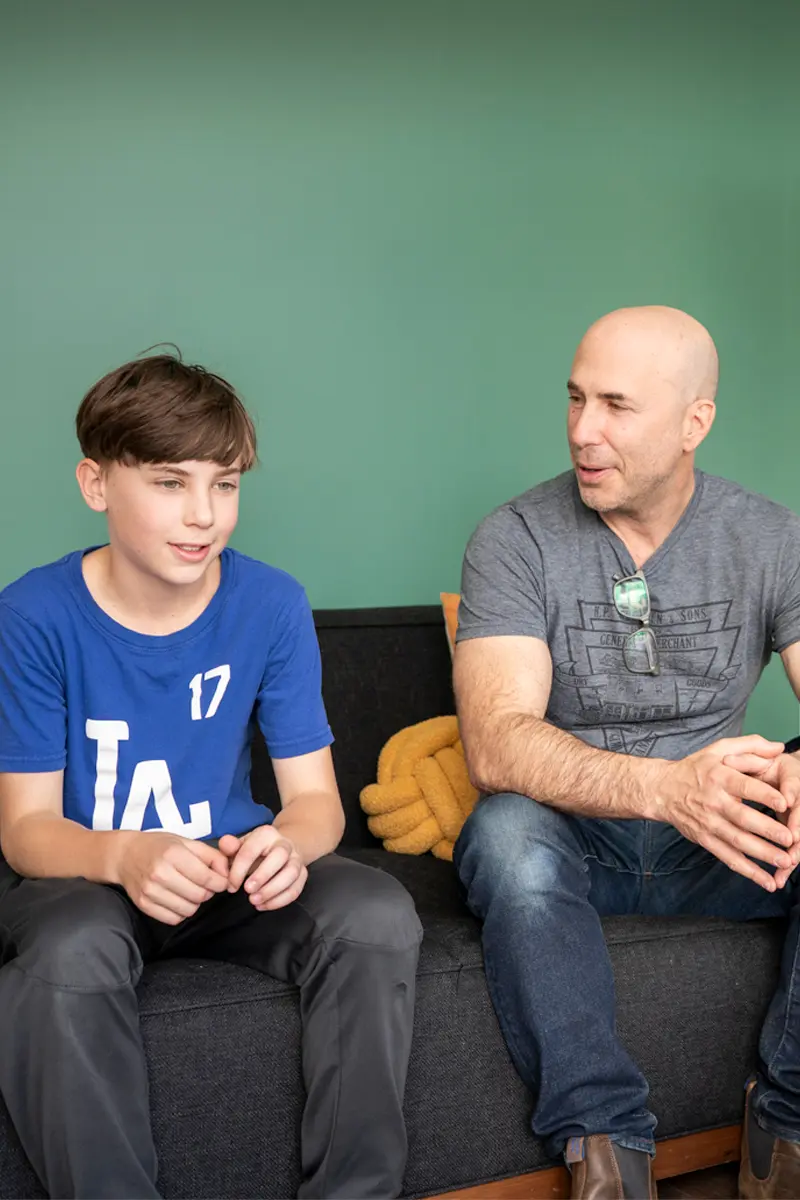What are executive functions?
Executive functions are a set of brain-based skills that allow us to manage ourselves and our environment effectively. These skills develop gradually, beginning in early childhood, but they don’t fully mature until the mid-twenties. In other words, there is no child, teen or young adult with a fully developed set of executive functions!
Key executive function skills
| Task Initiation and Completion | Starting and following through on tasks without procrastination |
| Emotional Regulation | Managing emotions to control and direct behaviour |
| Attention Regulation | Staying focused despite distractions or fatigue; shifting focus from one task to another |
| Cognitive Flexibility | Adjusting plans or thinking in response to new information or challenges |
| Response Inhibition | Pausing to think before acting or speaking impulsively |
| Planning and Organization | Creating and maintaining systems to prioritize and complete tasks |
| Time Management | Accurately estimating time and meeting deadlines |
| Working Memory | Keeping information in mind to perform multi-step tasks |
| Metacognition | Being self-aware and reflecting on one’s thinking and behaviour |
ADHD and executive function deficit
Everyone has a unique profile of executive strengths and weaknesses, and these skills can fluctuate from day to day depending on factors like sleep, stress, and hunger.
For people with executive function deficits, these challenges tend to be more consistent, noticeable, and impactful. They’re not just occasional struggles that show up during busy or stressful times — they’re ongoing patterns that affect daily life across home, school, and social situations.
ADHD can be understood as a delay or deficit in executive functioning (Barkley, 2024). These difficulties affect how the brain manages attention, behaviour, and emotions. In other words, ADHDers often know what to do but have trouble doing what they know — especially when tasks are boring, complex, hard or emotionally charged.
Executive functioning milestones
Preschool (3-5 years)
- Begin to follow simple instructions with support
- Engage in basic turn-taking and sharing
- Transition between activities with reminders
- Show emerging impulse control (e.g., waiting briefly for a toy)
Early School Age (6-8 years)
- Complete small tasks with reminders (e.g., putting away toys)
- Begin using simple organizational tools like a folder
- Start understanding time concepts (e.g., “10 more minutes”)
- Follow multi-step instructions with guidance
Middle Childhood (9-12 years)
- Plan and complete longer tasks (e.g., school projects) with scaffolding
- Use checklists or other tools to stay organized
- Improve ability to delay gratification (e.g., saving money)
- Begin to self-monitor work and check for errors
Teens (13-18 years)
- Manage a daily schedule independently with occasional check-ins
- Set and pursue long-term goals (e.g., studying for exams)
- Make decisions based on potential outcomes
- Use strategies to manage emotions (e.g., taking breaks)
Young Adults (19-24 years)
- Handle complex tasks independently (e.g., college assignments, budgeting)
- Develop advanced problem-solving strategies
- Balance multiple responsibilities (e.g., work, social life)
- Reflect on personal strengths and challenges to self-advocate
The role of self-management in daily life
Self-management relies on executive function skills to navigate life’s demands. When these skills are underdeveloped, it can lead to challenges socially, emotionally and academically.
For kids, teens, and young adults with ADHD, these challenges in self-management can make everyday tasks like completing homework, managing friendships, or sticking to a routine feel challenging and overwhelming.
| Attention | Sustaining focus, avoiding distractions, and shifting attention between tasks |
| Effort | Starting, maintaining, and completing tasks even when they feel difficult or boring |
| Emotion | Managing feelings like frustration, disappointment, or excitement to make constructive choices |
| Action | Thinking before acting and following through on plans without impulsivity |
| Information | Organizing, remembering, and applying information effectively to manage responsibilities |
| Task Management | Setting priorities, planning steps, and completing tasks on time |










